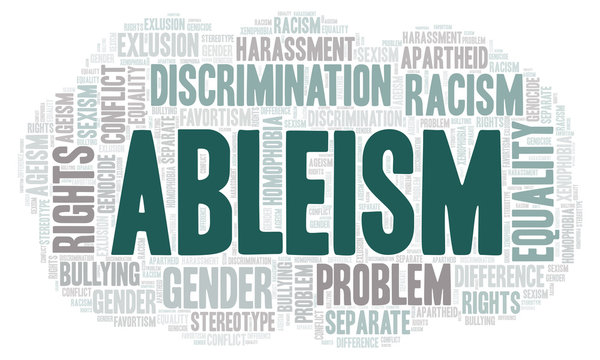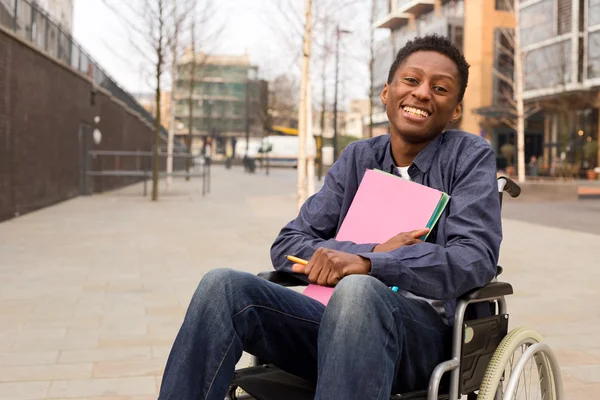How many of you have come across differently-abled individuals? I'm sure many of you have encountered such individuals on multiple occasions. We often feel sad about their situation and try to express sympathy toward them. We assist them, sometimes even without them explicitly asking for help. However, we fail to realize that our actions may inadvertently lead to discrimination rather than genuine support. While our intentions may be good, we tend to generalize that people with different abilities are incapable of being self-reliant and constantly require assistance. This form of discrimination is pervasive, even in well-educated and developed societies. However, it is essential to note that you should not be blamed, as most individuals, approximately 95%, remain unaware of this type of discrimination. Let us delve into a better understanding of the concept of ableism.
By definition, Ableism is discrimination against individuals with disabilities, perpetuating societal norms that privilege able-bodied people while marginalizing those with disabilities through barriers, stereotypes, and denial of rights. Ableism can manifest in various forms, such as physical or architectural barriers, inaccessible technology, stereotyping, negative assumptions, exclusionary language, and denial of rights and equal treatment. This can be best understood by an example.
A few months ago, I had an encounter with a person who had a visual impairment. Accidentally, I bumped into him, causing him to fall. I quickly apologized and offered my assistance to help him up. He had a navigation stick in his hand, which he used to find his way around. With a chuckle, he replied, "No worries. I'm usually the one bumping into others, haha." I was heading towards a tea stall, and I kindly invited him to join me for some masala chai. As it turned out, he was also headed there, so we went together and placed our orders. However, I noticed that the waitress who took our order treated him with excessive sympathy due to his visual impairment. Her tone was overly gentle, and her facial expressions were filled with pity whenever she interacted with him. It started to feel excessive. When we were leaving, there was a staircase at the exit. As the person was about to use his stick, the waitress suddenly grabbed him, attempting to assist him. He became annoyed and angrily exclaimed, "Back off, young lady! This is outrageous! Just because I'm blind doesn't mean I can't walk by myself. Leave me alone!" It was at that moment that I truly understood the concept of ableism.
In conclusion, I would like to emphasize that every one of us has unique abilities and limitations. Perfection is an unattainable concept, and there is no such thing as an ideal body. While some impairments may be visible while others are not, it is crucial that we do not judge or treat individuals based solely on their challenges. Offering assistance when needed is important, but we should also be mindful of not overdoing our empathy or pity, as it may undermine someone's independence. Instead, let us cultivate consideration for others' emotions and strive for harmonious coexistence in society. I hope I have provided you with an understanding of ableism. Please share this knowledge with others to promote awareness and contribute to the creation of an inclusive, ethical, and harmonious society.
In this entire situation, the woman failed to grasp that an individual with long-term visual impairment would have developed their own effective methods to navigate daily life. If assistance were ever needed, they would have sought it themselves. However, it was unnecessary in this case. This is merely one example of the discrimination that takes place daily worldwide.
The question now arises: how can we effectively address the issue of ableism? Through extensive research, several approaches have emerged. Foremost is the need for education and awareness. By promoting understanding and advocating against ableism, we can bring about significant changes and foster a more inclusive society.
In addition, implementing inclusive policies and legislation would greatly assist in ensuring protection and equal opportunities for individuals with disabilities. This encompasses anti-discrimination laws, accessibility standards, and reasonable accommodation policies. While accessibility measures such as ramps and wheelchairs have become increasingly prevalent, there is still room for improvement. By leveraging available technology, we can provide specialized accommodations to enhance the quality of life and comfort for people with disabilities.
Empowerment stands as another crucial factor in eradicating this problem. By offering resources, support services, and accommodations, we can empower individuals with disabilities to fully participate in society. This encompasses accessible healthcare, education, employment opportunities, and social services, enabling them to lead fulfilling lives and contribute to their communities.
In conclusion, I would like to emphasize that every one of us has unique abilities and limitations. Perfection is an unattainable concept, and there is no such thing as an ideal body. While some impairments may be visible while others are not, it is crucial that we do not judge or treat individuals based solely on their challenges. Offering assistance when needed is important, but we should also be mindful of not overdoing our empathy or pity, as it may undermine someone's independence. Instead, let us cultivate consideration for others' emotions and strive for harmonious coexistence in society. I hope I have provided you with an understanding of ableism. Please share this knowledge with others to promote awareness and contribute to the creation of an inclusive, ethical, and harmonious society.



This is a very nice and informative article. I have interpreted and learned a lot from this article. I will surely share this with my friends and spread awareness. XD
ReplyDelete